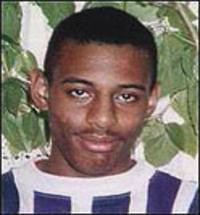By Alex Daud Briggs
Stephen Lawrence was an 18-year-old young person living in South East London nearly 30 years ago. He was a normal teenager ÔÇöstudying for his A-Levels in Technology, Physics, and English Language and Literature with the hope of becoming an architect when he was older.
On 22nd April 1993, however, he was stabbed by a gang of white youths while he and his friend Duwayne Brooks were getting back home from playing video games at his uncle’s house. He was attacked while waiting for the bus. The racially motivated attack was completely unprovoked, the gang had randomly decided to engulf the young man whilst one of them brandished a knife. Stephen Lawrence collapsed as he was attempting to run away and died on his way to the hospital.
Stephen Lawrence Day is celebrated on the day he was viciously murdered and was founded by Baroness Doreen Lawrence to celebrate the achievements that Black minorities have gained, whilst also raising awareness of the racism that still exists today. This is a day where minority groups from across the world amplify their voices and use the platform that Stephen Lawrence Day provides to try to make changes for a better future. Baroness Lawrence asks that people get involved in creating a more fair and inclusive society, in Stephen’s memory.

Looking back from 2021, nearly 30 years on, this racist hate crime is still thought of to be nothing but atrocious. However, what was seen by many as almost as appalling was the lack of effort shown by London’s Metropolitan Police. Despite there being at least three witnesses and five prime suspects, no arrests were made up to two weeks after the murder. Even more shockingly, even after one of the suspects turned themselves in, all charges were dropped and they were allowed to walk free based on insufficient evidence.┬á
An innocent teenager was killed but the case was quickly closed and brushed away. Lawrence’s family attempted to have a private prosecution, without legal aid, leading to them having to raise the funds on their own ÔÇö but the suspects were still ultimately let go. Even the witness’s testimony by Duwayne Brooks, who plainly saw the offenders, was deemed ÔÇÿunreliable’.
If this wasn’t bad enough, it was later found that Scotland Yard had employed black police officers to spy on the Lawrence family and allies. This was allegedly done so that The Met may get “dirt” on the family and discredit the campaigns surrounding them. This was only discovered in 2013 thanks to a whistleblower, some 20 years after the murder. For many in Britain’s Black community, the entire case showed that the police didn’t care.
“My son has been murdered and none of these officers, the justice system, the politicians, nobody cared. These idiots who murdered my son had more rights than we did” said Stephen’s mother, the nowBaroness Doreen Lawrence, in reflection. She has since become an advocate for minority rights in Britain and a member of the House of Lords.
In the years following the attack, the murder of Stephen Lawrence would spark a new civil rights movement in Britain. Protests were held demanding that the police re-open the case and bring the killers to justice. Even Nelson Mandela visited the Lawrence family, publicly stating that “it seems black lives were cheap” on his visit to Britain in 1993 during the aftermath of Stephen Lawrence’s death.
Stephen Lawrence remains a symbol of the charge for racial equality in Britain even today, a cause brought to the fore once again due to the most recent Black Lives Matter protests in the mists of the 2020 COVID-19 pandemic following the killing of George Floyd.
Thanks to the campaigning brought about by movements surrounding Stephen Lawrence’s death, things were able to change. In 1999 public inquiry judge, Sir William Macpherson, published a ground-breaking report six years in the making, concluding that there was ÔÇÿinstitutionalised racism’ within the police force. The report stated that:
The “collective failure of an organisation to provide a professional service ÔǪ through unwitting prejudice, ignorance, thoughtlessness and racist stereotyping which disadvantage minority ethnic people”.
The report soon led to reforms within the police and justice system; and, following 70 recommendations for the police suggested within the document, 67 were implemented within two years in the Criminal Justice Act of 2003.
These changes included creating a legal obligation for police to protect good relations between ethnic communities, and to protect victims of racial violence. Believe it or not, these were not in place in the UK before 2003 and the enforcement of the Criminal Justice Act. Arguably, these were some of the first laws in Britain that truly made racism a crime that was punishable by law. There was a big cultural change, with the public becoming more aware of the struggles of minority groups across the UK at the time.
In 2012 two of the five prime suspects, Gary Dobson and Davis Norris, stood trial for Stephen’s murder and were rightfully convicted of the murder of Stephen Lawrence. Justice was served after almost 20 years ÔÇö step in the right direction even if it took longer than it should have.
That brings us to the present day, and Stephen Lawrence Day 2021. Many believe it to be fairly apparent that the reforms brought about following Stephen Lawrence’s murder did not stop institutionalised racism within the police force or the legal system of the United Kingdom. Many incidents of police brutality and discrimination still fall on Black individuals in Britain today, proven by findings such as Black people were nine times more likely to face a stop and search by the Police in 2020 than white people ÔÇö as one recent example which proves there is still, unfortunately, a long way to go.
Quench Features
Instagram: @quenchfeatures
Write for us: email [email protected] or join the Facebook group where our pitches are posted
Our Section: Features
Feature Image: Kalea Morgan on Unsplash. Image License.


